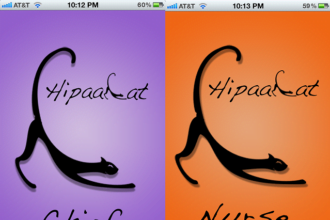Smartphones, tablets such as the iPad and other mobile technologies are becoming commonplace in the US today. These devices are nimble, efficient and able to process large amounts of data while conveniently sized. In a recent survey in 2012, it was found that nearly 95% of all Americans have mobile phones and 60% have smartphone devices. The numbers are a bit higher in the younger age groups but the devices are prevalent even in the over 65 set.
Smartphones, tablets such as the iPad and other mobile technologies are becoming commonplace in the US today. These devices are nimble, efficient and able to process large amounts of data while conveniently sized. In a recent survey in 2012, it was found that nearly 95% of all Americans have mobile phones and 60% have smartphone devices. The numbers are a bit higher in the younger age groups but the devices are prevalent even in the over 65 set. Tablet computer sales are expected to overtake laptops in 2013–one estimate predicts that 240 million tablets and 204 million laptops will be purchased this year. With technology at everyone’s fingertips, it is not surprising that more and more patients are using technology to track their medical conditions.
The New York Times recently reported on a survey published by the Pew Research Center on American’s health tracking behaviors. Fortunately, as a society, it appears that we are becoming much more health conscious. In the survey, Pew researchers found that 70% of all adults track some health indicator for themselves or a loved one. However, much of the tracking is classified as informal and 49% say that they track “in [their] head”. Of those who track health indicators, 35% use a paper journal and now 21% use technology such as a smartphone or tablet application. As mentioned in the Pew report, this is the first survey conducted to examine health tracking behaviors in the US–Importantly, the survey found that 46% of those with tracking behaviors changed their approach to healthcare and have become much more engaged. Specifically, the engagement prompted them to ask more questions of their physician and to often seek more that one opinion.
Mobile technology is a powerful tool. Last year alone over 500 companies made healthcare related applications and there are now almost 15,000 applications for health indicator tracking on the market. By tracking health indicators such as blood pressure, heart rate, daily weights and blood sugars (among others) patients can see the impact of interventions such as diet, exercise and drug therapy. Seeing results in real time can be very motivating. The ill effects of chronic diseases such as hypertension and obesity are not always readily apparent to patients until end organ damage occurs. With tracking applications, the patient is able to see the day to day variation and is engaged in the control of his or her health indicators. As I have mentioned in a previous blog, I believe that the time is near when physicians will begin prescribing mobile health tracking applications for their patients during routine office visits. Healthcare in the US has to change in order to be successful. No longer can patients passively sit back and accept the fact that physicians will be able to take care of all of their healthcare needs. Now, more than ever, patient engagement and participation is key to success. Under the new healthcare system, physicians will face increased pressure to see more patients in less time. Documentation challenges with electronic medical records (EMR) and other paperwork will further diminish the time spent with patients. Patient participation in health maintenance through health indicator tracking via mobile applications will prove to be a critically important part of our healthcare system. I foresee a doctor’s visit where a patient can download their smartphone data directly into their EMR file in their physicians office. This ability to sync data will not only save time but will improve accuracy of the record. Ultimately, I expect that mobile applications will be able to transmit data messages to physician offices when certain health indicators have risen to dangerous levels.
Technology to improve the health of Americans is here. How and when we incorporate these technologies into the healthcare system is still developing. As with most things in medicine in the US, the FDA will most likely begin to play a larger role in the evaluation of health tracking applications. Ultimately, I expect the same level of regulation that we see with new prescription drugs or medical devices. (However, that could be subject of a blog all its own). For now, I encourage patients and physicians to consider using medical applications in their practices. Certainly, tracking indicators can benefit patient outcomes–patient access to data increases awareness, increases engagement and will ultimately save healthcare dollars.
The post Tracking Health Indicators: The Role of mHealth Technologies in Improving Outcomes appeared first on The Doctor Weighs In.







